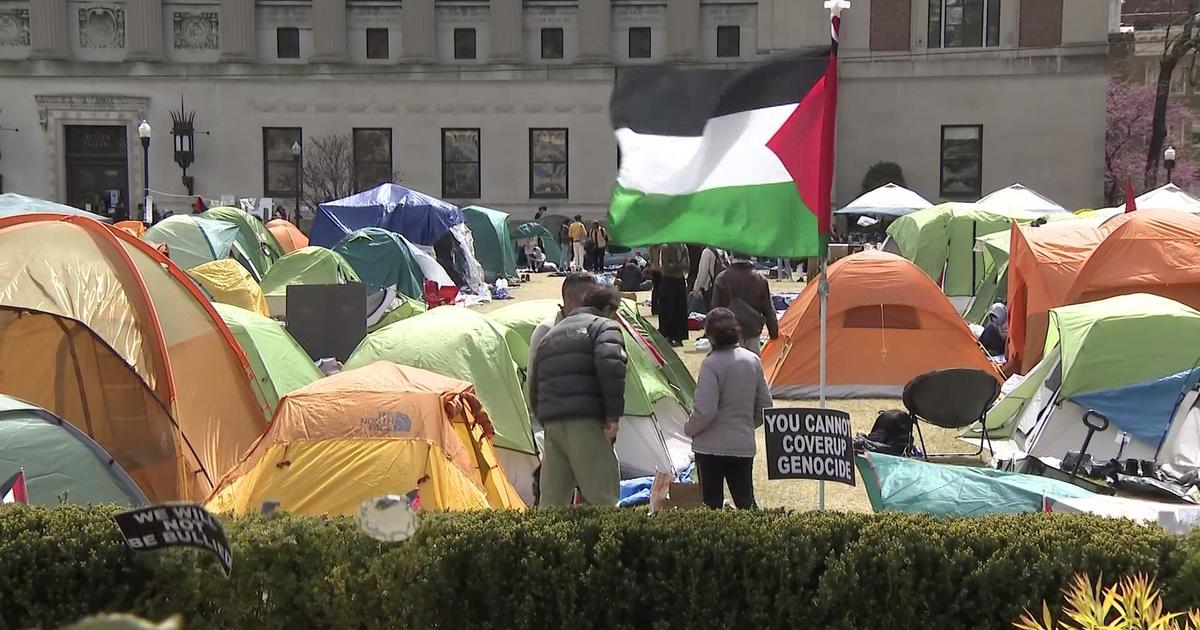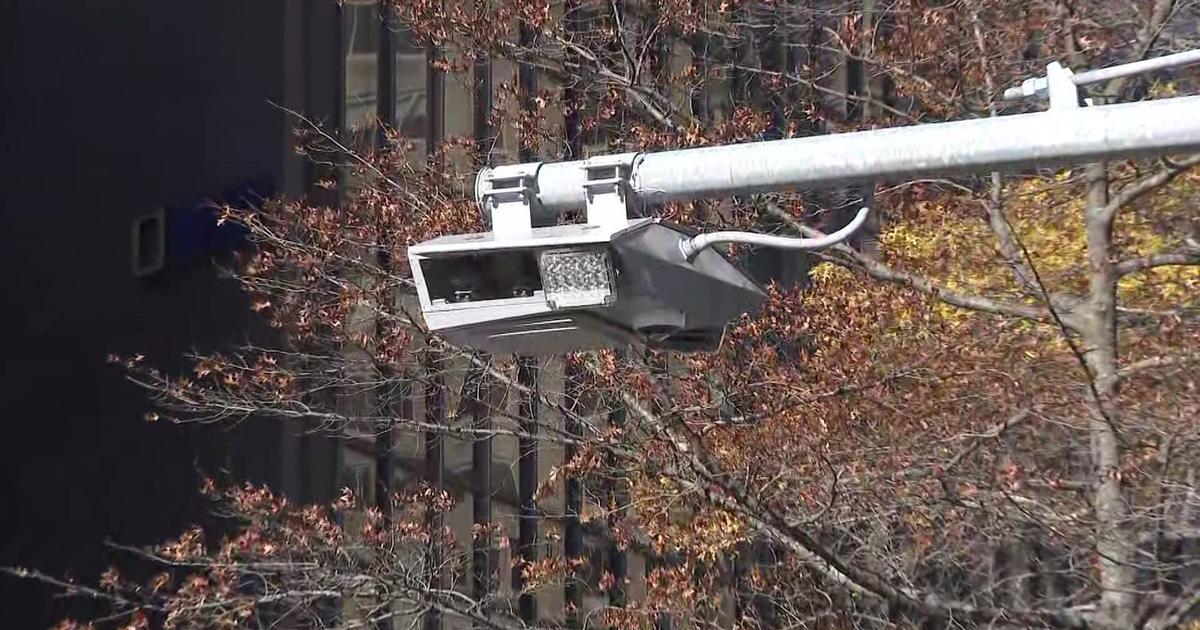Not So Fast! Judge Halts New York City's Super-Sized Sugary Drink Ban
NEW YORK (CBSNewYork) -- A judge's decision to nix a portion-control regulation that was set to go into effect Tuesday, stopping New Yorkers from being able to buy super-sized sugary drinks at restaurants, movie theaters, sports venues and street carts will be appealed by New York City.
Manhattan Supreme Court Judge Milton Tingling ruled Monday that the city may not enforce the new regulation, which would have put a 16-ounce limit on sugary drinks -- both bottled and fountain, WCBS 880's Alex Silverman reported.
Mayor Bloomberg Confident City Will Win Sugary Drinks Appeal
WEB EXTRA: Read The Judge's Ruling (pdf)
Tingling said the regulation, as it was written, was both "capricious" and "arbitrary" because it applied to some, but not all establishments, 1010 WINS' Stan Brooks reported.
"it applies to some but not all food establishments in the City. It excludes other beverages that have significantly higher concentrations of sugar sweeteners and/or calories on suspect grounds, the loopholes inherent in the Rule, including but not limited to limitations on re-fills, defeat and/or serve to gut the purpose of the Rule," Tingling wrote in his ruling.
BLOOMBERG: RULING WAS 'IN ERROR'
However, speaking at a news conference Monday evening, Mayor Michael Bloomberg's said "the judge's decision was clearly in error."
"We were very confident this morning. We think the judge is totally in error in the way he interpreted the law," Bloomberg said.
Not So Fast: Judge Halts New York City's Super-Sized Sugary Drink Ban
Tingling expressed that the Board of Health had no authority to impose the ban based on concern about obesity, CBS 2 Political Reporter Marcia Kramer reported.
"One thing not seen in any of the Board of Health's powers is the authority to limit or ban a legal item under the guise of 'controlling chronic disease,'" he wrote.
However, Mayor Bloomberg certainly did not agree with that assessment.
"We strongly believe that in the end, the courts will recognize the Board of Health's authority to regulate the sale of beverages that have virtually no nutritional value and which, consumed in large quantities, are leading to disease and death for thousands of people every year," Bloomberg said.
The mayor adamantly stated, "We have a responsibility as human beings to do something."
"With so many contracting diabetes and heart disease, with so many children who are overweight and obese, with so many poor neighborhoods suffering the worst of this epidemic, we believe it is reasonable to draw a line," he said.
Bloomberg later stated, "I'm trying to do what's right. I've got to defend my children...and everybody else to do what's right and save lives."
In a statement released shortly after the ruling was handed down, New York City's Health Commissioner Dr. Thomas Farley said:
"Without a portion cap on sugary drinks, it would be harder to tackle an obesity epidemic that kills more New Yorkers than anything other than smoking, and causes misery for many thousands more who suffer from heart disease, diabetes and other debilitating illnesses. Sugary drinks are a leading cause of this epidemic."
JUDGE: RULE WOULD CREATE 'LEVIATHAN'
However, Tingling wrote that the court "expressed concern about the administrative agency having a virtually limitless authority."
"This court agrees that the regulation herein takes the issue to new heights," he wrote. "The Portion Cap Rule, if upheld, would create an administrative Leviathan and violate the separation of powers doctrine. The Rule would not only violate the separation of powers doctrine, it would eviscerate it. Such an evisceration has the potential to be more troubling than sugar-sweetened beverages," the judge stated in the ruling.
RESTAURANTS PREPPED FOR BAN, NOW WHAT?
The ruling is widely seen as a victory for those in the beverage industry who were opposed to the ban.
The American Beverage Association weighed in following the ruling, saying it "provides a sigh of relief to New Yorkers and thousands of small businesses in New York City that would have been harmed by this arbitrary and unpopular ban."
Even City Council Speaker and mayoral candidate Christine Quinn expressed her doubts about the ban.
"I'm afraid it's not going to be effective, but at some point when it goes into effect, we'll have that data and we'll see who's right and wrong, and on this one," she said. "I'm happy to be wrong, and I hope the mayor is right."
The ban did not include grocery or convenience stores that don't serve prepared food. It also didn't apply to diet soda, other calorie-free drinks or anything that has at least 50 percent milk or milk substitute.
Restaurants, street carts, coffee joints and other venues had spent the weekend getting ready for the upcoming clampdown before Monday afternoon's decision.
"I definitely believe it's going to hurt my business," said Mary Cira of Pronto Pizza, who said she had to toss nearly a $1,000 worth of 20-ounce and 2-liter bottles of soda. She'll also have to reprint her menus.
The eleventh-hour court ruling threw some business owners for a loop, including Brother Jimmy's BBQ in Murray Hill.
"It's like, what took them so long to jump on this somewhat silly seeming ruling?" manager Cary Henderson asked CBS 2's Jessica Schneider.
Henderson said he is a bit baffled about what happens next inside his restaurant. He purged all his soda glasses that were 17 ounces and larger and isn't sure what he's going to do about getting them back.
"I don't know. I don't have the big ones anymore," he said. "So, I don't know, perhaps, unless it's a mad dash tonight to refurnish us with our larger cups."
Other establishments like Dunkin' Donuts had posted colorful fliers explaining the complex rules surrounding coffee.
For example, lattes were exempt because they're more than half milk and it's okay for customers to fill their own cups of large coffee with all the sugar they want.
MAYOR RELEASES OBESITY DATA
Bloomberg has said the ban is a way to fight a growing problem of obesity in the city. On Monday morning, he even released new data that officials said showed "the strong correlation between sugary drink consumption and obesity."
It found that nine of the top 10 neighborhoods in New York City with the highest obesity rates were also the highest in sugary drink consumption, according to city officials.
"This new data is the latest evidence that sugary drinks are helping to drive the obesity epidemic, which falls hardest on low-income communities," Bloomberg said. "Obesity is killing more than 5,000 New Yorkers each year and demands bold steps to fight this crisis. This week, New York City will do precisely that."
The new data showed that 50 percent of residents in Bedford-Stuyvesant and Crown Heights drink at least one sugary beverage each day. In those neighborhoods, about a third of the residents are obese.
Compared with the Upper West Side, for example, just 14 percent said they have a sugary drink daily and the obesity rate stands at 12 percent.
"It is poor people who really get hurt," Bloomberg told reporters Monday. "If anybody will get help by this, it's them because they've got to focus on working harder and moving themselves up the ladder and being overweight doesn't help you do that."
"You see these pictures of the old robber barons with their big stomachs, that was a sign of success. Today, those people are doing Pilates and running in marathons and triathlons," he added.
The data was taken from the Community Health Survey, an annual telephone survey of approximately 9,000 adults, ages 18 years or older.
REGULATION WAS 'TRIAL BALLOON'
Critics have said the ban is an unfair burden on small businesses. A customer who can't get a large soda at a local restaurant could still buy a 32-ounce Big Gulp at a 7-Eleven since many convenience stores and supermarkets are excluded from the new regulations.
Critics have also said a ban wouldn't make a meaningful difference in the fight against obesity.
"Bloomberg's big idea is nothing more than a meaningless trial balloon to see if he can establish a precedent and then find a bigger target such as the sizes of pizza. Residents of the Big Apple should really be asking their mayor what's next in his seemingly endless crusade against any food or drink with calories," Center for Consumer Freedom senior research analyst J. Justin Wilson said in a statement. "Personal irresponsibility is what got New Yorkers to put on a few extra pounds. And it's going to take personal responsibility, not a government takeover of our diet, to shed that weight."
Speaking Sunday on CBS News' "Face The Nation," Bloomberg said all the city was doing was "reminding you that it's not in your interest to have too many empty calories."
"If you want to have 32 ounces, just buy two 16-ounce cups," he said. "But it's totally your choice. We're not banning anything. It's called portion control."
New Yorkers are divided on the issue. A Quinnipiac University poll released last week found 51 percent opposed it, while 46 percent approved.
"It's ridiculous," said Merquita Ward. "I'm a grown woman. I should be able to drink what I want."
"Nobody needs a drink big enough to take a small bath in," said Mark Asch. "We're all paying the price for people who drink too much sugar."
Please share your thoughts below...



